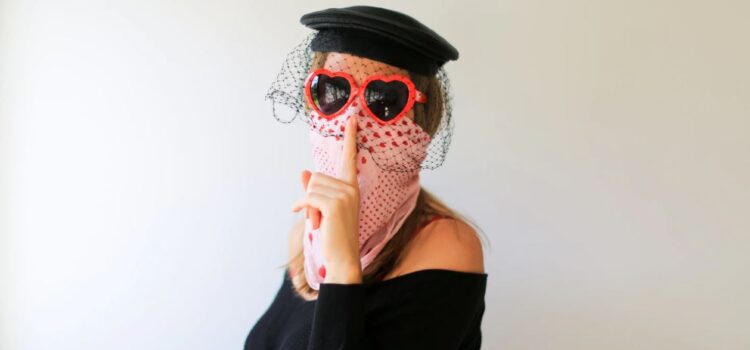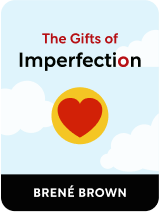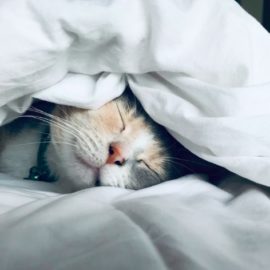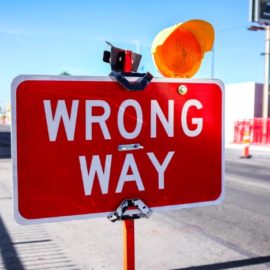

This article is an excerpt from the Shortform book guide to "The Gifts of Imperfection" by Brené Brown. Shortform has the world's best summaries and analyses of books you should be reading.
Like this article? Sign up for a free trial here .
Is authenticity a trait that you either have or lack? How can you cultivate authenticity? What are the two main barriers to being your authentic self?
According to Brené Brown in The Gifts of Imperfection, being your authentic self is a conscious and courageous choice. However, the fear of resistance from your loved ones and societal expectations can make being authentic difficult.
Continue reading to see what Brené Brown has to say about the first guidepost for Wholehearted living.
Be Your Authentic Self
In The Gifts of Imperfection, the first guidepost for living Wholeheartedly is to be your authentic self. You might think that authenticity is a trait that you either have or lack. However, this isn’t true. Being authentic is a way of thinking and acting. It’s making the conscious choice to show your true self to the world. This means all of your true self, including the more vulnerable parts—for example, your fears, your imperfections, and your quirks.
Being your authentic self takes a lot of courage. Letting the world see who you truly are can be a scary process. To take this courageous step, you’ll need to learn to accept your vulnerabilities. If you see your vulnerable parts as flaws to be ashamed of, you’re going to try to hide these parts of yourself. This is incompatible with authenticity.
Instead of being ashamed of your vulnerabilities, recognize them as important parts of your individuality. They’re not flaws to be hidden. Instead, they’re gifts that add to your uniqueness. Adopting this mindset will increase your self-worth. You’ll stop seeing your vulnerabilities as evidence you’re “not good enough,” and instead be able to fully accept yourself for who you are.
Two Barriers to Being Authentic
Practicing authenticity isn’t easy. Two barriers can prevent it from flourishing.
The first barrier is the fear of resistance from your loved ones. Choosing to live authentically requires you to become a more honest person: to stop hiding parts of yourself and curb any inauthentic behaviors. You may fear that your loved ones won’t accept this change: that they won’t like the new, authentic you, and that this will damage your connections.
The second barrier is societal expectations. Society does its best to discourage us from being ourselves. Instead, it demands that we conform—that we look, act, and think in a certain way. An example of this is the way that society enforces gender norms. Research has shown that society expects men to be in control of their emotions (and of women). They’re also expected to prioritize work. Meanwhile, society expects women to be modest, slim, and kind.
If your true, authentic self doesn’t match up to society’s expectations, you may be afraid to be yourself. What if people judge or shame you for failing to conform?
Both barriers outlined above are rooted in the fear that living authentically will result in criticism or rejection. Unfortunately, this may happen. Some people do react badly to change, even if this change is a necessary part of a loved one living authentically. For example, imagine your old, unauthentic self was very selfless and people-pleasing. In contrast, your new, authentic self is more focused on self-care. In this situation, the people you used to please may feel like you’re abandoning them. They may become angry or accuse you of selfishness.
Likewise, societal expectations are so deeply ingrained in our culture that people do often ridicule or shame those who fail to meet them. For instance, you may well face pushback if you fail to adhere to recognized gender norms.
Overcoming These Barriers
To overcome the fear of rejection and pushback, you need to acknowledge that embracing authenticity isn’t always the safe option when it comes to pleasing others. However, you should also accept that the negative consequences of living inauthentically are much more severe than the criticism you may face for being authentic.
Living inauthentically is a rejection of self-acceptance and self-love. Deciding that your true self needs to remain hidden reinforces the idea that you’re fundamentally not good enough. It chips away at your worthiness and may impact your overall mental wellbeing. According to Brown, choosing to play it safe and reject authenticity can lead to depression, anxiety, rage, resentment, and numerous other mental struggles.
It takes courage to embrace your authenticity in the face of rejection. But, it’s still the best way forward. Sacrificing your wellbeing and worthiness to avoid upsetting others just isn’t worth it.

———End of Preview———
Like what you just read? Read the rest of the world's best book summary and analysis of Brené Brown's "The Gifts of Imperfection" at Shortform .
Here's what you'll find in our full The Gifts of Imperfection summary :
- How to stop feeling like you're not "good enough"
- How shame affects your self-worth
- The 10 guideposts to living Wholeheartedly and cultivating worthiness






